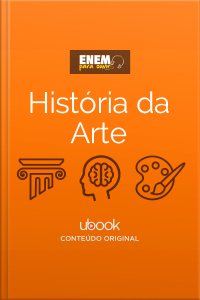Synopsis
The Huntington exhibits its permanent collections of European art from the 15th to the early 20th century and American art from the late 17th to the late 20th century. Special exhibitions are presented, as well, and include those developed from the permanent collection as well as loan shows that relate to The Huntingtons collecting areas. Conferences and lectures are organized annually in conjunction with exhibitions and also include presentations on topics such as conservation, architecture, and photography.
Episodes
-
In Search of Blue Boy’s True Colors
01/03/2018 Duration: 48minKimberly Chrisman-Campbell, art historian and journalist, reveals the scholarship and science behind Project Blue Boy, The Huntington’s two-year effort to conserve one of Western Art’s greatest masterpieces, in this annual Founder's Day lecture.
-
Louis C. Tiffany’s Glass Mosaics
02/02/2018 Duration: 55minKelly Conway, curator of American glass at the Corning Museum of Glass in Corning, New York, discusses the understudied aspect of Tiffany’s virtuosity. In the late 19th and early 20th centuries, Louis Comfort Tiffany directed an artistic empire in the design and creation of stained glass windows and lamps, blown glass vases, and other objects of luxury. But his innovations in glass mosaics represented perhaps his most expressive mastery of the medium.
-
Live Free or Die
27/01/2018 Duration: 43minArtists Soyoung Shin and Juliana Wisdom, two of the seven artists whose work is featured in the exhibition COLLECTION/S, discusses the influence of 18th-century French history and decorative arts on their work. The discussion is moderated by Catherine Hess, chief curator of European art.
-
Frederick Hammersley’s Remarkable Account of his Painting Practice & Materials
19/01/2018 Duration: 43minAbstract artist Frederick Hammersley (1919–2009) kept meticulous documentation of his painting process and materials. His Painting Books, compiled over the course of nearly 40 years, describe in detail the creation of hundreds of individual works. Scientist Alan Phenix of the Getty Conservation Institute will survey the technical content of the Painting Books, with particular focus on matters that have significance for the care and conservation of Hammersley’s works.
-
Cochineal in the History of Art and Global Trade
10/12/2017 Duration: 01h24minAlejandro de Ávila Blomberg of the Oaxaca Ethnobotanical Garden and Oaxaca Textile Museum explores the historical and cultural significance of this natural crimson dye. Used from antiquity, cochineal became Mexico’s second-most valued export after silver during the Spanish colonial period. Recorded Dec. 10, 2017.
-
Calder: The Conquest of Time
31/10/2017 Duration: 51minIn his groundbreaking biography of American sculptor Alexander Calder (1898–1976), author Jed Perl shows us why Calder was—and remains—a barrier breaker, an avant-garde artist with mass appeal. Perl is joined in conversation by Alexander S. C. Rower, who is both the chairman and president of the Alexander Calder Foundation and Calder’s grandson. Recorded Oct. 30, 2017.
-
The Origin of the American Work of Art
19/04/2013 Duration: 50minBill Brown asks, What is American about American art? Can art change America? How might aesthetic education transform the social and economic ideals of the nation? He discusses case studies from the 1840s to the 1950s that addressed these questions. Brown is professor of American culture at the University of Chicago and the Los Angeles Times Distinguished Fellow at The Huntington for 2012–13.
-
Musical Chair: An Abiding Friendship between Woodworker Sam Maloof and Violist Jan Hlinka
01/09/2010 Duration: 20minHal Nelson discusses the close bond between artist and client in a lecture about a double music stand and musician’s chair crafted in 1972 by woodworker Sam Maloof for musician Jan Hlinka. Nelson’s talk took place during the planning of the exhibition “The House That Sam Built: Sam Maloof and Art in the Pomona Valley, 1945-1985,” on view at The Huntington Sept. 24, 2011, through Jan. 30, 2012.
-
Pop L.A.: Art and the City in the 1960s (Haynes Foundation Lecture)
23/03/2010 Duration: 44minCecile Whiting, professor of art history at the University of California, Irvine, discusses the ways in which various artists contributed to L.A.’s urban identity in the 1960s, producing artworks inspired by the sprawling new city as well as its natural environment.













